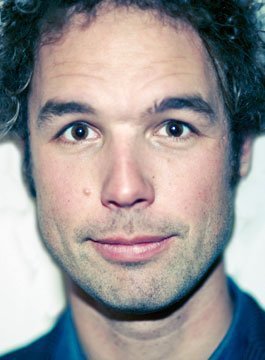Thimon de Jong is an expert in the strategic business impact of future human behaviour and societal change.
Thimon is the founder of Whetston / Strategic Foresight.
He has helped clients like Ikea, Morgan Stanley, Google and Novartis to future-proof their leaders and business strategies. He is a lecturer at Utrecht University (social psychology) and published the book Future Human Behavior – Understanding What People Are Going To Do Next.
Thimon is a sought-after global keynote speaker and leadership trainer and has been ranked ‘highest-rated speaker’ at more than 100 business conferences & leadership programs.
Audiences praise his entertaining, interactive sessions, full of practical takeaways rooted in research.
Thimon de Jong Speaking Topics:
Future Proof Leadership
- What can leaders practically do today to be ready for the future?
- How to navigate the polycrisis, ride the next wave of digitalisation, embrace new ways of working, increase trust and take care of the planet and themselves?
The Future of Work
- What are the practical implications of the future of work? How much flexible WFH/ remote/hybrid/metaverse work are we going to do?
- How to attract the next generation of workers: what does the talent of the future want?
- How to attract and keep them?
The Human Side of Technology
- How will people respond to future technologies?
- How can leaders get themselves and their people to rationally and emotionally embrace new technology?
- What is the perfect balance between the virtual and the physical?
Navigating the Polycrisis
- It is time to envision how human behaviour will change in the coming years now that society is hit by a so-called ‘polycrisis’: where several crises in a row (Covid, Ukraine, inflation,
recession & the climate crisis) shake up society and rattle our mental well-being. - How does this affect our behaviour? Decision-making? And leadership?
Generation Z: Collaborative Action
- Gen Z is making quite an impact!
- How do they differ from older generations?
- How to create a thriving collaborative multi-generational workplace where their entrepreneurialism and their action mindset can thrive?
The Future of the Planet
- The 2010s were mostly about raising awareness, and the 2020s are all about Action with a capital A.
- So what can organisations practically do to make a real impact (without being cancelled)?
- How should leaders approach this topic?
- How can an organisational purpose be aligned with the personal goals of its employees, stakeholders and clients?
Mental Surplus
- The topic of mental health is rapidly becoming as ‘normal’ as physical health.
- Employees are actively looking for mental health resources at work and see their manager as one of them.
- Any future-proof leader should start working on a mental surplus today, focusing on empathy skills and emotional intelligence.

